The main purpose of this ongoing blog will be to track planetary extreme, or record temperatures related to climate change. Any reports I see of ETs will be listed below the main topic of the day. I’ll refer to extreme or record temperatures as ETs (not extraterrestrials).😜
Main Topic: Climate Change Is Transforming Summer in Europe
Dear Diary. As I have alluded to frequently, Europe has been experiencing many more extreme heatwaves than the U.S. this decade. Obviously, this effect has some profound ramifications, which we will delve into today via a recent New York Times article. Looking at trends, most of Europe is warming faster than the U.S. Let’s compare decadal charts for the United States, Spain, France, Great Britain and Germany of daily record ratios:
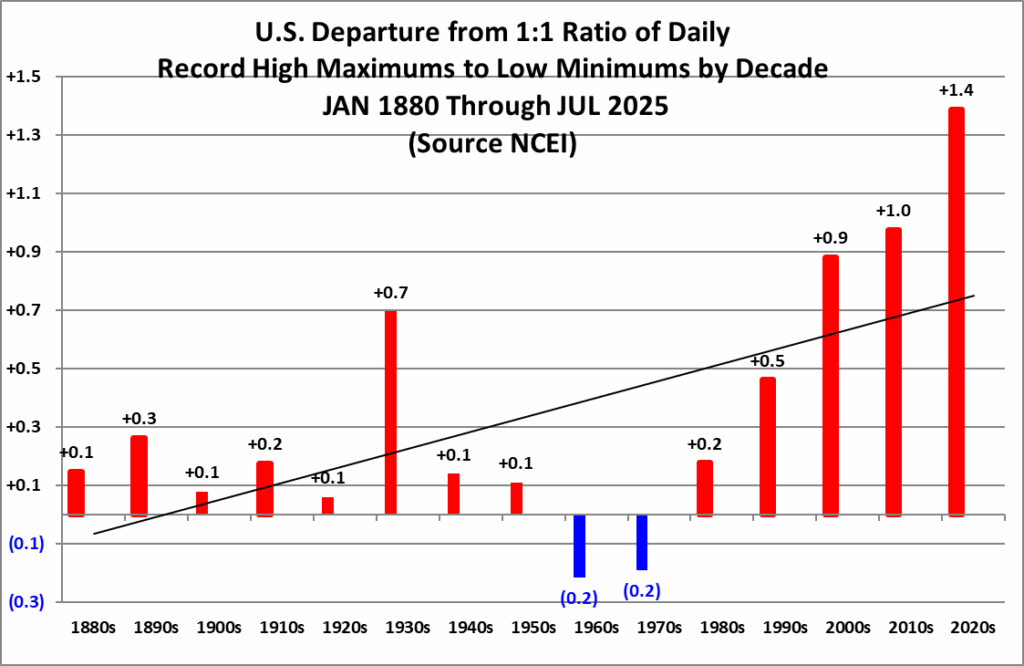
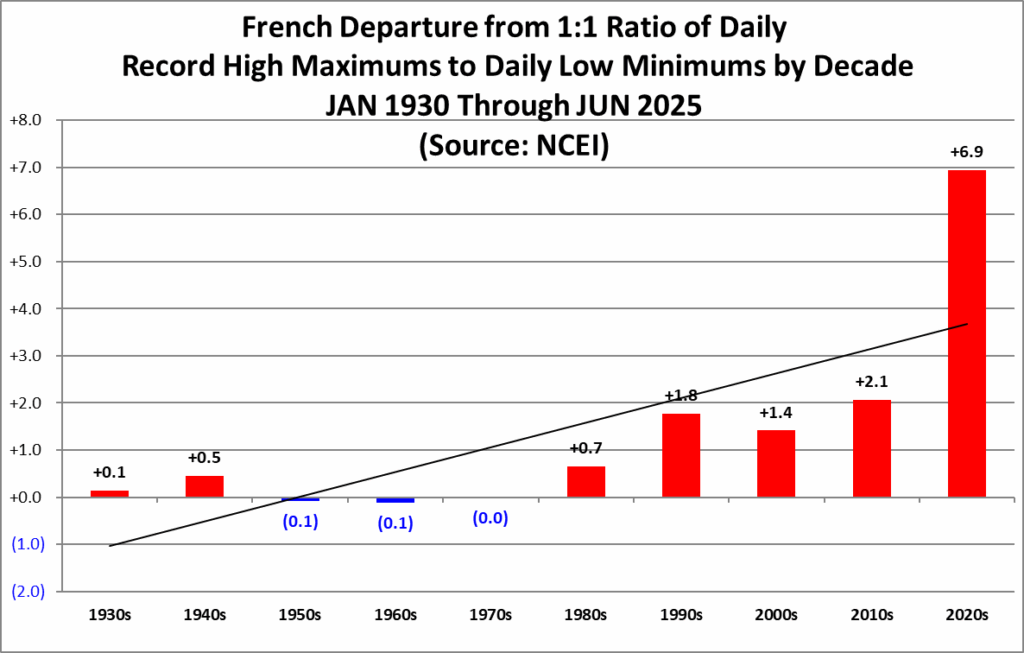
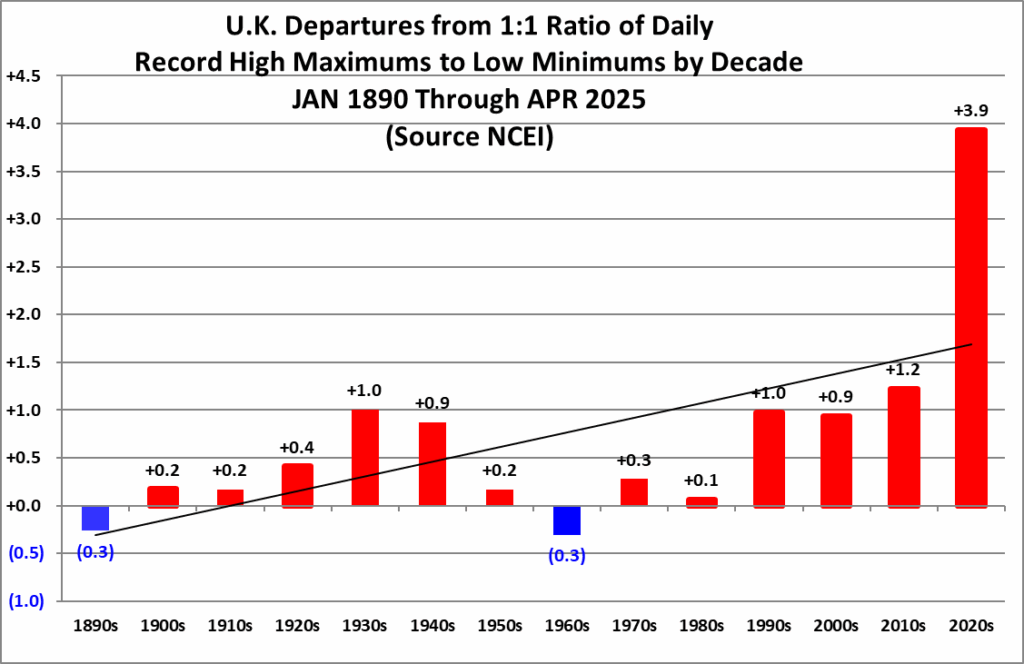
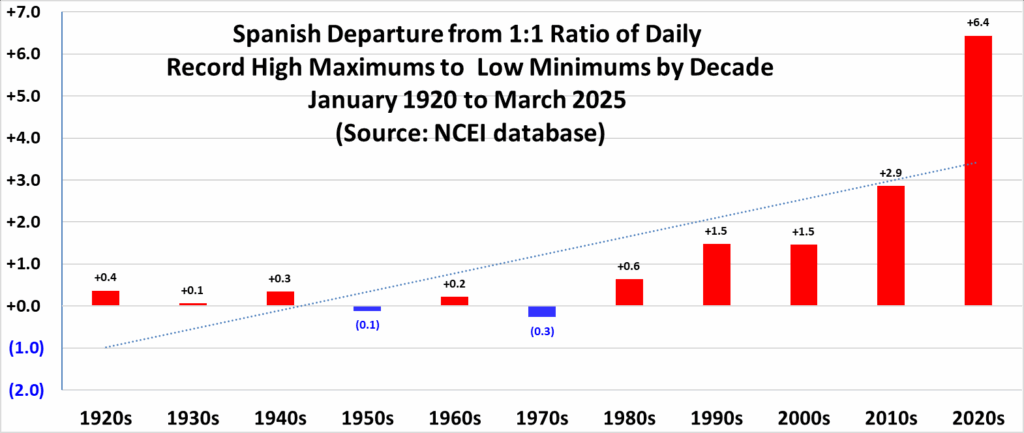
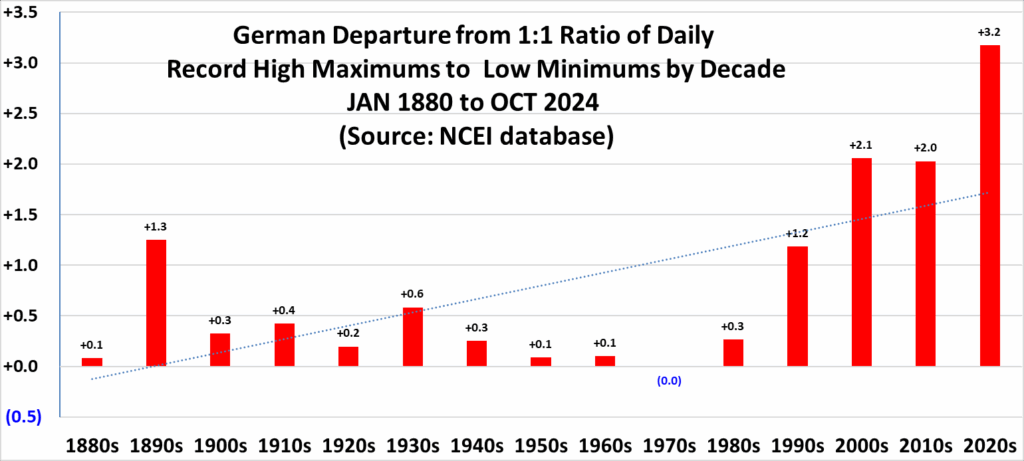
As depicted on the above charts, ratios of U.S. National Center for Environmental Information record reports are much higher for this decade so far for western European countries than for the U.S.
Now let’s look at some of the consequences of these record count trends looking at that New York Times article:
Climate Change Is Transforming Summer in Europe – The New York Times
Subscriber-only Newsletter
Climate Forward
Climate Change Is Transforming Summer in Europe
A season of record wildfires and a wave of extreme heat is forcing Europe to confront difficult questions about how to adapt.
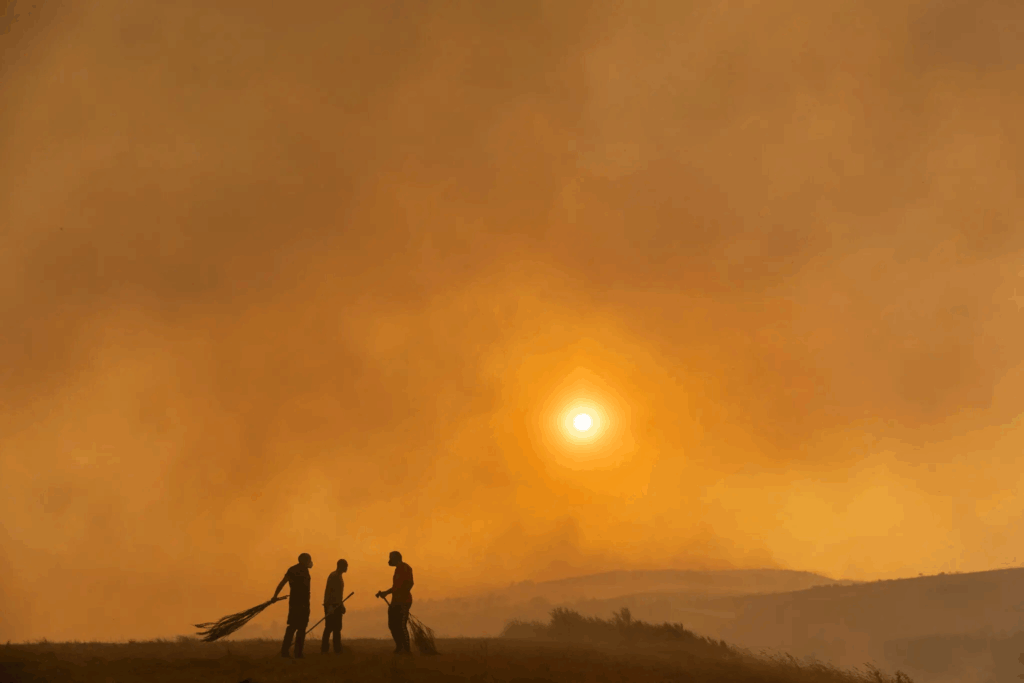
Volunteers prepared to fight a wildfire in the province of Ourense, in northwest Spain, on Aug. 18.Credit…Pablo Blazquez Dominguez/Getty Images
By Claire Brown
Aug. 28, 2025
This summer, record wildfires have raged across Europe, burning more than a million hectares of land and forcing people to evacuate their homes. A five-day stretch of extreme heat killed hundreds of people. Spain baked through its most intense heat wave on record, and the United Kingdom is all but certain to have seen its hottest summer ever.
In Europe, which has warmed about twice as fast as the global average, climate change has begun to force difficult questions about the economic and cultural costs of adapting to a dangerously warming planet.
Hotter summers are reshaping Europe’s tourism industry, prompting cities to plan for days of asphalt-melting heat, and sparking national debates about the use of air conditioning. Wildfires have added to the summer’s health risks.
At the same time, this summer’s overall temperatures across the region were “normal-ish,” according to Carlo Buontempo, director of the Copernicus Climate Change Service, the European Union monitoring agency.
Calling the season a “double story,” Buontempo said, “It has not been as extreme as recent summers as a whole, but then you had these absolutely freakish events happening,” referring to the heat waves and fires.
Deadly heat waves
A five-day period of extreme heat in late June and early July resulted in 2,300 heat-related deaths across 12 European cities, according to an early statistical estimate by scientists at World Weather Attribution. Their analysis found that the influence of climate change may have tripled the death toll.
“We often talk about heat waves as being the silent killer because you do get these excess deaths that are not necessarily visible,” said Clair Barnes, a research associate with World Weather Attribution. She added that heat-related deaths are frequently not recorded as such.
Heat waves this summer shuttered the top of the Eiffel Tower and prompted Italy to ban outdoor work during the hottest parts of the day. European businesses reported lower foot traffic as people avoided venturing outside. In Switzerland and France, nuclear reactors were shut down after the rivers they relied on to cool their facilities heated up.
In Finland and Norway, a relentless heat wave drove reindeer from the countryside into the towns, seeking water and relief from mosquitoes.
A new wildfire era
Hot and dry conditions have meant that wildfires have spread rapidly in Spain, France, Greece and Portugal over the last few months.
The active wildfire season put a strain on local resources. Spain called in support from the military to help battle the blazes.
“One of the things that we’re seeing now is there are so many fires simultaneously that people can’t necessarily call on neighboring countries or neighboring regions to help out when they have a big fire, because they’re happening simultaneously, and that really compounds the impact,” Barnes said.
Smoke from the fires has drifted hundreds of miles, resulting in degraded air quality far from the source. The combination of extreme heat and pollution can have an outsize impact on public health.
“There have been a number of situations where the quality of the air, even far away from the fire, was so significantly impacted that people believed that the fire was in their neighborhood, even if the fire was 200, 300, 600 kilometers away,” Buontempo said.
Staying cool
The summer’s heat stirred up arguments about the best ways to keep European cities cool. In many European countries, fewer than half of households have air-conditioning.
In France, Marine Le Pen, the far-right leader, called for a mass air-conditioning rollout. The leader of the France’s Green Party balked at the idea and argued in favor of improving energy efficiency and “greening” cities.
In July, the Financial Times published data suggesting that the low use of air-conditioning across the continent has meant that four times as many Western Europeans died between 2000 and 2019 as a result of extreme heat than North Americans.
Elsewhere, high electricity prices are forcing residents to find other ways to adapt. In Britain, some are exploring options like improving insulation or planting trees to shade their rooftops. In other countries, residents are experimenting with reflective paint, white stone facades, and heavy shutters.
More than half of European cities now have a dedicated climate change adaptation plan, Buontempo said. “Adaptation, contrary to mitigation, can be tackled effectively at the local level,” he said.
Here are more “ETs” recorded from around the planet the last couple of days, their consequences, and some extreme temperature outlooks, as well as any extreme precipitation reports:
Here is More Climate News from Sunday:
(As usual, this will be a fluid post in which more information gets added during the day as it crosses my radar, crediting all who have put it on-line. Items will be archived on this site for posterity. In most instances click on the pictures of each tweet to see each article. The most noteworthy items will be listed first.)